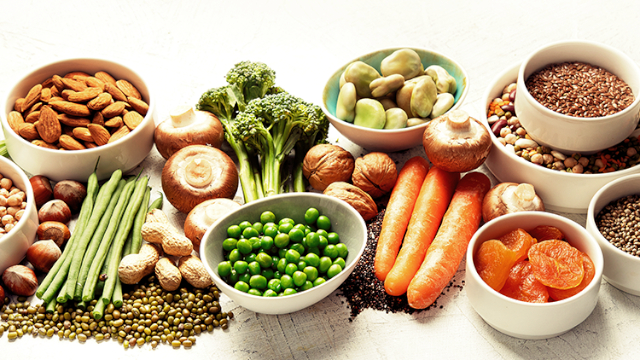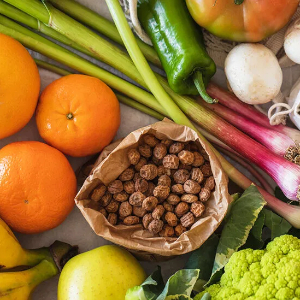Once again, a fundamental dietary component has been found to be essential to a healthy life. Doctors and nutritionists have long counselled patients to eat more fibre. Now a new study reveals that dietary fibre is even more important than previously thought to our overall well being…
 Fibre-rich foods: Maybe the best way to add essential fibre to your diet.
Fibre-rich foods: Maybe the best way to add essential fibre to your diet.
And to compound the issue, Dr. Zack Holmes of Duke University notes voluntary fibre consumption has dropped off in recent years. The average American is apparently getting only 20-40 percent of the daily fibre they should be.
“We’ve evolved to depend on nutrients that our microbiomes produce for us,” Holmes says. “But with recent shifts in diet away from fiber-rich foods, we’ve stopped feeding our microbes what they need.”
What they did
The Duke team wanted to determine whether fibre supplements were more effective in bolstering gut health than natural sources. Top do that, they decided to compare the performance of different fibre sources. They also wanted to determine whether, “it may be necessary to ‘personalize’ fiber supplements to different people, since different fermentable fibers have been shown to have different effects on short-chain fatty acid production from one individual to the next.”
Researchers modeled the human gut in the lab creating artificial fibre fermenters. Using identical equipment, they could assume that any differences in results were due to differences between the fibre sources tested.
What they found
“Participants who had been consuming the most fiber beforehand showed the least change in their microbiomes, and the type of supplement really didn’t matter, probably because they were already hosting a more optimal population of gut bugs,” study leader Dr. Lawrence David said. Conversely, participants who had been consuming the least fiber saw the greatest increase in their gut microbiomes, regardless of which one was being consumed.
The takeaway
“These findings are encouraging,” said graduate student Jeffrey Letourneau. “If you’re a low fiber consumer, it’s probably not worth it to stress so much about which kind of fiber to add. It’s just important that you find something that works for you in a sustainable way.”
“It doesn’t need to be a supplement either,” Holmes added. “It can just be a fiber-rich food. Folks who were already eating a lot of fiber, which comes from plants like beans, leafy greens, and citrus, already had very healthy microbiomes.”
My take
It’s my impression that most folks think we need fibre mainly to keep us regular. But there’s much more to it than that.
According to an abstract of the study findings, low fibre consumption, “is believed to be a root cause behind a lot of our common health maladies, including obesity, cardiovascular disease, digestive disorders and colon cancer.”
The good news is, you don’t have to go massively vegetarian or change your diet drastically in any other way to get more fibre. You can use an over-the-counter fibre supplement recommended by your doctor or pharmacist. And one type of fibre supplement seems to work just as well as the next, according to the study.
Natural is better
Nevertheless, I believe it’s probably best to add more natural, vegetable sources of fibre to your diet. These not only add variety to your diet but contribute loads of vitamins and minerals you need for optimum health.
“It can just be a fiber-rich food,” Holmes says. “Folks who were already eating a lot of fiber, which comes from plants like beans, leafy greens, and citrus, already had very healthy microbiomes.”
An easy way to boost your overall well being
Adding fibre – however you do it – is an easy way to improve your overall health and well being. Why would you not do it?
Muse on that…
~ Maggie J.

